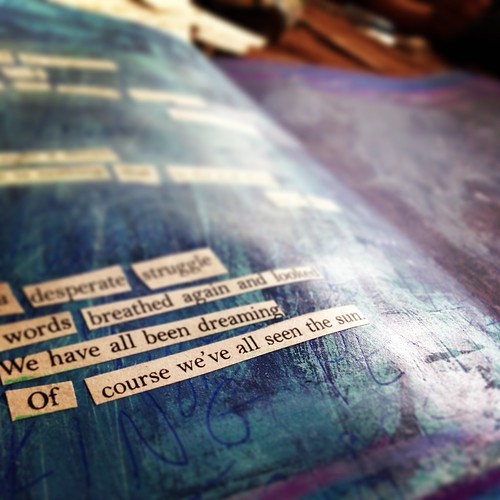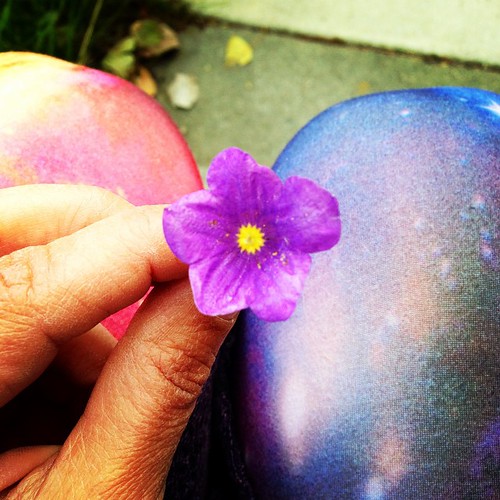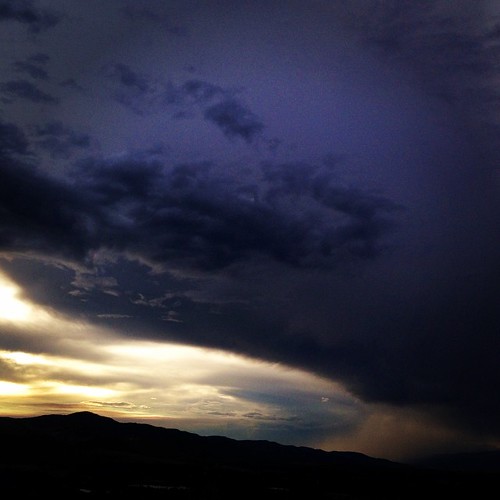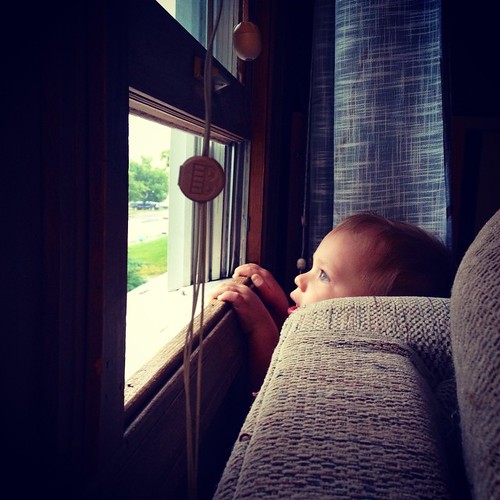I couldn't think of anything but
Ferguson this week. My eyes glued on Twitter, my chest aching with the knowledge of profound injustice unfurling in terrifying tableaus, my brain, my heart were with the people of Ferguson.
Those who should be the peacemakers, the upholders of law and justice, ran roughshod over peace and law and justice and turned the streets of their community into a war zone. Worse still, those whose job it is to report truth instead report half-truths, suppressing information, demonizing the victims, until nobody was allowed to report anything at all, with journalists arrested, their equipment seized.
Did you feel it? The earth trembling under the feet of people on the move -- no, on the march, for justice, for answers, for change? Did you hear their words? See their faces?
I felt them, heard them, saw them.
And now, now that the insanity that possessed the police officers of Ferguson, MO, has abated somewhat, now that the law is no longer assaulting peaceful protesters with tear gas and rubber bullets and fire, now that we can all breathe again as names are released and the FBI asks questions and the hypocrisy of the police becomes more and more obvious, although things are
far from settled --
Now, will I forget what I felt, heard, saw?
* * *
The fact is that that Mike Brown's senseless murder by a police officer is not
unique. Horrifyingly, it is something of a matter of course in this country for
unarmed black men to be killed by the law for no other crime than
living. For
every 28 hours that passes, another African-American man is extrajudiciously executed by police, security guards, and vigilantes.
But I'm not black. I'm a white woman living in a very white city in a very white state, and Ferguson (or Chicago, or Seattle, or Detroit, or Austin, or . . .) can feel very far away.
I could go back to my insulated life, keep my eyes on the non-militarized streets of my community, and forget that I enjoy unearned, unfair benefits thanks to my color.
But there is the matter of my son.
* * *
When I look at my son, his skin confronts me.
Which means that there are children and teens and people who will be attacked and/or executed by the police for doing those things, and that just should not be. Because black people are people. Imperfect, flawed, glorious people. Just like you, just like me.
When I look at my son, I see the people who will be treated like not-people because they were born a certain color.
When I look at my son, I understand that he only escaped living that ugly day-to-day reality by pure chance. That he is privileged for no good reason at all. Like me.
* * *
Did you know that African-Americans have been dealing with the horrifying reality of racial profiling for decades, for centuries, for far too long, on a daily basis?
I didn't. I didn't.
Oh God, how could I not?
But I didn't.
And now that I know, now that I finally stopped shutting my eyes to the reality of so, so many people, what will I do with that knowledge? What can I?
I don't know that racism is for me to fix, for me to find the answer to. As a white woman, there are many, many facets of a black woman's reality that I cannot and may not ever be able to understand. And honestly, I'm not even sure that I should be writing this post at all.
But, as one of the folks I follow on Twitter so piercingly stated, to say silent about these matters is abusive*. So here I am, speaking, very imperfectly, and refusing to stay complicit, trying to remove the only enabler from the problem that I can -- myself.
* * *
So, now what?
For what it's worth, I think that it is my responsibility to see, to open my eyes and look to where it's hard and where people are hurting, even if it might make me terribly uncomfortable.
It is my responsibility to understand as best as I am able, to learn, to feel.
It is my sacred duty to see the humanity the people of Ferguson, in all African-Americans, in the people of Gaza, the immigrant children asking for help at the border of the U.S. and Mexico, the homeless men and women who live on the streets of my city, and more.
Because, in the end, the African-American community of Ferguson? They are people. They are you, and they are me, and we are they.
We are different from each other, yes, perhaps vastly different, and yet we still belong to one another.
So I ask you, look at your life. Look at your children, your spouse, your lover. Look at your coworkers, your friends, the clerk ringing up your items at the supermarket. Look at them, and understand that there's no reason why it wasn't them that the police murdered, innocent and unarmed. Look at your child and understand that it was only not him, not her, not you by pure, nauseating chance.
Think you can't muster up any bit of compassion for someone who is "other"? Look to your pain. Look to where you expect understanding and empathy, or at least sympathy.
For me, this is the death of my daughter. I showed my anguish, people looked. You looked, and you witnessed the pain of birthing and mourning a dead baby, and that was a powerful gift of respect, of love, one that I treasure.
Look to the empathy you have received, and consider whether you might be able to extend the same gift to someone aching from a situation you have not experienced, but is no less worthy of people who witness.
And don't do this to be macabre. Don't do this to shame yourself or your loved ones. Don't do this to harm yourself, or to wallow in the darkness. And definitely don't do it to make yourself feel better without changing your ways of thinking, or to earn a bit of applause. Because that makes it about you, when it's really about them.
Instead, do this with a mind to understand, with a heart to see, with commitment to not look away. Do this to bring light to the shadows. Find what awakens your compassion, and go there. Let it flood your veins and synapses, overflow into your words and actions.
Because when we can see the injustice, truly begin to see it and experience it via empathy . . . well, I think that is the beginning of change. Not the end, not the whole solution, but a beginning.
There are many awful things in the world, things that we cannot do anything about. But injustice done by one human to another human, or by one group of humans to another group? That's we can do something about.
Please don't look away. Look where you can, as you can, and hold the joy and beauty and horror and pain that you discover there as the sacred knowledge that it is. Look, and let your eyes be light piercing the darkness.
"We think that by protecting ourselves from suffering we are being kind to ourselves. The truth is, we only become more fearful, more hardened, and more alienated. . . . Yet when we don't close off and we let our hearts break, we discover our kinship with all beings."
(I think this book is required reading.)
"The only thing necessary for the triumph of evil is for good men to do nothing."
- Edmund Burke
There are lots of people writing and sharing about Ferguson and racism waaaay better than I am. Like these folks . . . knowing and/or following many of these people has been truly life-changing:
(Okay, so I feel I have to end this with a caveat -- there is real,
hard, excruciating work to be done to bring about racial
reconciliation. There is. But the seeing -- that's where it starts.
Because how can anyone fix a problem that she is blind to? So let's
start there, and see where it takes us.)
*unfortunately, I have no idea who said this. I'd love to give credit -- let me know if you know!
**this post contains affiliate links. thanks for supporting this blog!



